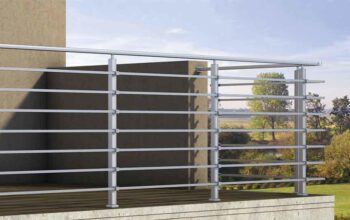Wondering if electric radiators are the best fit for your home? This guide explores their pros, cons, energy-saving potential, and what sets them apart from other heating systems. Whether you’re upgrading your setup or switching from traditional heating, this article helps you decide with confidence. Learn how these modern heaters perform, how they affect your bills, and whether they’re a smart move for your comfort and budget.
Choosing the right heating system for your home can be a challenge. With rising energy bills and a growing focus on energy efficiency, homeowners are increasingly exploring alternatives to traditional heating systems. One popular option gaining traction is the electric radiator. But are electric radiators truly the right choice for your home?
In this article, we’ll examine electric radiators, how they work, and whether they offer the flexibility, comfort, and cost-effectiveness needed for your space. We’ll help you weigh the benefits and limitations so you can make an informed decision.
What Are Electric Radiators?
Electric radiators are standalone heating units that use electricity to generate and radiate heat. Unlike gas central heating, they do not require a boiler or pipework. Each unit operates independently and can be controlled on a room-by-room basis, offering flexible and efficient heating.
These radiators typically heat a thermal fluid (like oil) or dry elements (such as ceramic plates), emitting warmth evenly across a space. Modern versions often include programmable timers, thermostats, and smart home compatibility.
Benefits of Electric Radiators
Electric radiators offer a range of advantages for homeowners who want efficient and modern heating.
1. Easy Installation
- No need for plumbing or pipework
- Wall-mounted or freestanding options
- Ideal for flats, extensions, or off-grid properties
2. Energy Efficiency
- 100% of the electricity used is converted into heat
- Programmable controls reduce energy waste
- Zone control means you only heat rooms when needed
3. Low Maintenance
- No annual servicing required (unlike gas boilers)
- Fewer mechanical parts to break down
- Easy to clean and maintain
4. Smart Control Options
- Wi-Fi connectivity and app-based control
- Adjust settings remotely
- Integrates with smart home systems for greater convenience
Are Electric Radiators Cost-Effective?
The cost of running electric radiators depends on your energy tariff, insulation quality, and how effectively you manage heating settings. Electricity can be more expensive per unit than gas. However, electric radiators offer pinpoint heating control, which often offsets higher running costs by preventing energy waste.
Over time, efficient usage and strategic heating can make electric radiators a financially sensible choice, especially for small homes or rooms that aren’t used all day.
Drawbacks to Consider
While electric radiators have many advantages, they are not without limitations.
1. Higher Energy Rates
- Electricity tends to cost more than gas
- May increase your monthly bills if not used efficiently
2. Not Suitable for Large Homes
- Multiple units may be required to heat large spaces
- The installation of several radiators can become costly
3. Initial Cost
- Some high-end models are expensive upfront
- However, this is often offset by low maintenance and installation fees
Comparing Electric Radiators to Other Heating Systems
Let’s see how electric radiators stack up against other common home heating systems.
Electric Radiators vs. Gas Central Heating
- Easier to install and control
- Gas may be cheaper to run, but it requires regular servicing
Electric Radiators vs. Storage Heaters
- Provide on-demand heat, unlike storage heaters, which rely on off-peak electricity.
- More precise temperature control.
Electric Radiators vs. Heat Pumps
- Cheaper and simpler to install
- Heat pumps are more efficient, but cost significantly more upfront
Best Situations to Use Electric Radiators
Electric radiators shine in specific scenarios where their strengths are best used:
- Homes without access to mains gas
- New extensions, loft conversions, or conservatories
- Flats or studio apartments
- Holiday homes or properties used seasonally
- Spaces where zoned heating is essential
They also make sense for eco-conscious homeowners who want a heating system compatible with solar panels or green tariffs.
How to Choose the Right Model
When shopping for electric radiators, consider these factors:
- Room size: Match the radiator’s output to your room’s square footage
- Control options: Look for digital thermostats, timers, and Wi-Fi connectivity
- Design: Choose styles that blend with your interior décor
- Installation: Decide between plug-in or hardwired models
- Safety features: Look for thermal cut-outs and child-lock functions
Reviewing reviews and comparing features can help you choose a unit that balances style, performance, and value.
Conclusion
Choosing a heating system is a big decision that impacts comfort, cost, and energy use. Electric radiators bring modern efficiency, flexibility, and control, making them a viable option for many UK homes. Though electricity prices are higher, their intelligent operation and low maintenance can make them a smart long-term investment.
Electric heating is no longer a last resort as homes become smarter and more energy-conscious. With the right model and mindful use, these radiators could very well be the ideal match for your heating needs.








